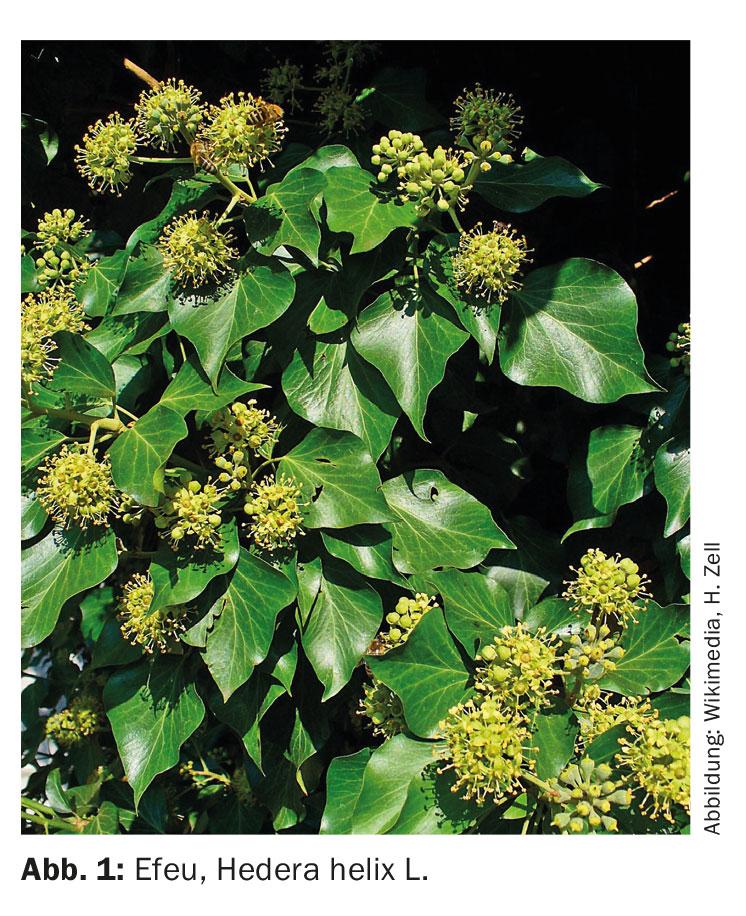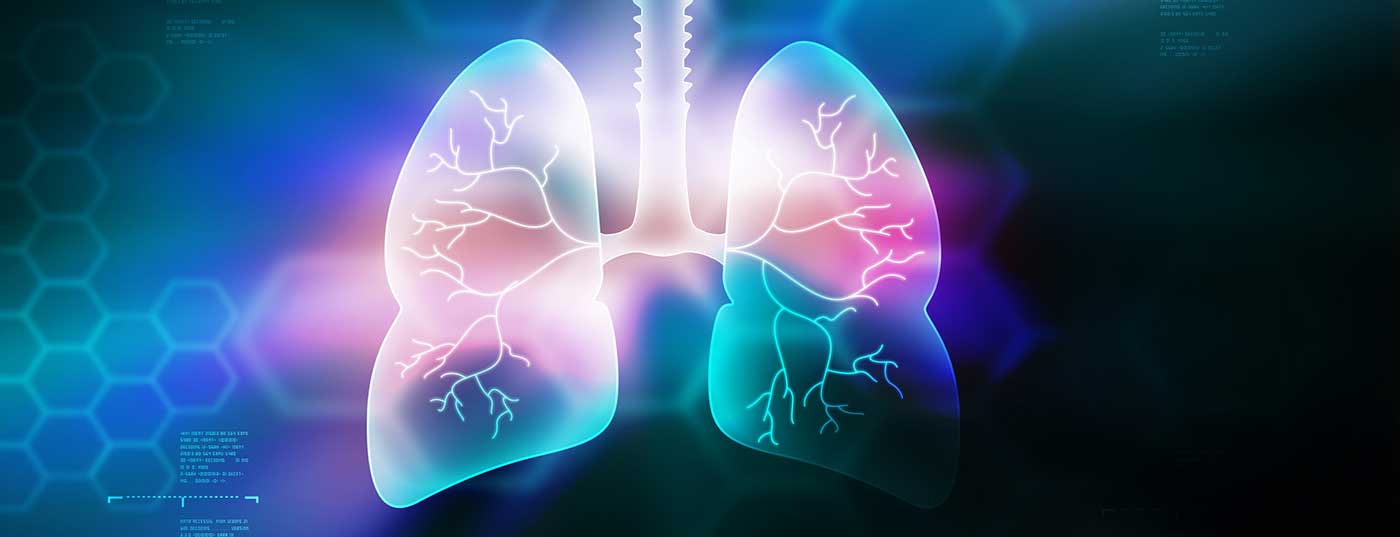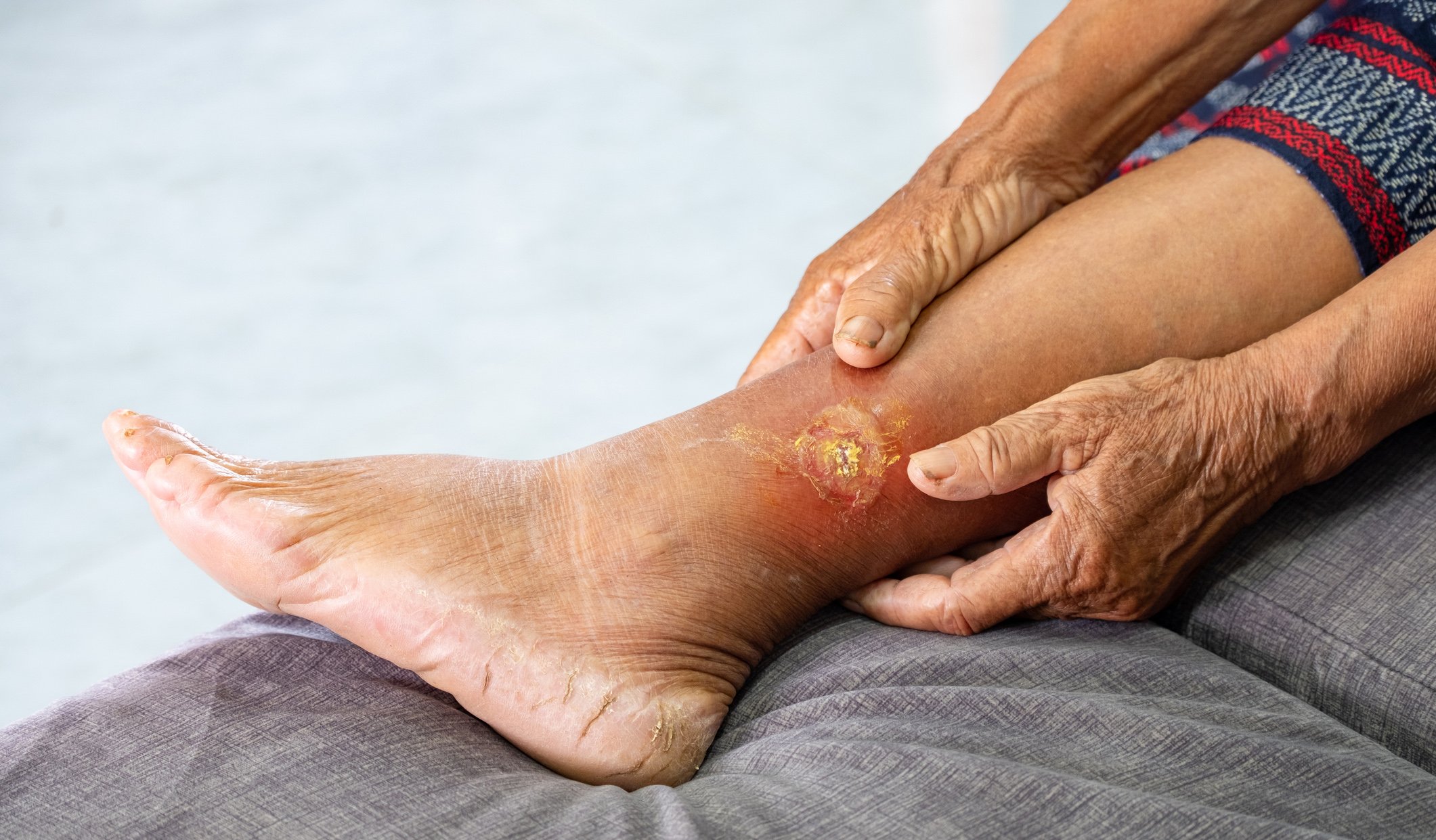Asthma, COPD, and acute or chronic bronchitis are the most common conditions that affect the bronchial tubes. Diseases of the bronchial tubes can be treated with herbal medicines as an add-on therapy or as a single therapy, depending on the symptoms present. This study review highlights the various options.
The treatment of bronchial diseases is one of the frequent activities in the consulting room, especially in winter. Since the glacier man Ötzi and his ancestors were already confronted with such complaints, mankind has learned to try out plant-based strategies against them. And nature really does mean well with our bronchial tubes! Acute bronchitis as well as asthma and COPD can be treated and cured (bronchitis) or at least alleviated (asthma, COPD) with various herbal medicines. In this review, only herbal medicines of Western phytotherapy will be considered. However, articles documenting the efficacy of plants used by TCM are also published regularly [1]. A review of phytotherapeutic treatment modalities of Asian medical traditions was published in 2011 [2]. However, these articles present only in vitro studies and pharmacological animal studies.
Asthma and COPD
In 2014, an article on phytotherapeutic treatment options for asthma and COPD was published in this issue [3]. Therefore, only a few facts and two new studies will be briefly mentioned again here: A review from 2000 evaluated 17 clinical studies, eight of them from Western phytotherapy, which investigated the efficacy of herbal preparations in bronchial asthma [4]. Two studies found some efficacy for marijuana (Cannabis sativa) on the one hand and ivy (Hedera helix) on the other. Smoking a 2% THC preparation decreased (but not significantly) respiratory resistance compared with placebo. A preparation of 35 mg of dried ivy leaf extract produced a significant decrease in airway resistance compared with placebo in children with asthma.
Another review study in 2006 came to a consistently negative conclusion for the efficacy of herbal preparations in COPD [5]. Meanwhile, Matthys et al. 2013, however, show that add-on therapy with the standardized extract EPs® 7630, produced from the South African medicinal plant Pelargonium sidoides, in addition to standard therapy for COPD, significantly reduces the number of exacerbations and the necessary use of antibiotics compared to placebo [6]. Matthys was able to confirm these results with another recently published study [7]. The study on Myrtol® cited below was also able to confirm efficacy of the herbal preparation against COPD.
Bronchitis
In the sequel, studies documenting the efficacy of medicinal plants for the treatment of acute and chronic bronchitis are presented. In each case, the latest studies are taken into account.
Myrtol®: Myrtol® is the proprietary name of a combination of different essential essences. This is made from the essential essences of Eucalyptus globulus, Citrus sinensis (sweet orange), Myrtus communis (myrtle) and (Citrus × aurantium) lemon. For this purpose, the steam distillate of the rectified essential oils is mixed in the ratio 66:32:1:1. The important ingredients are monoterpenes, d-limonene, 1,8-cineole, and alpha-pinene. A recently published review study [8] presents various clinical studies in which Myrtol® was also used against acute and chronic bronchitis. Antioxidant, antiphlogistic and antibacterial properties have been confirmed with clinical trials. In the case of acute bronchitis, the essential oil mixture was tested against placebo and proved to be significantly superior. In the case of a comparative study with ambroxol and cefuroxime, all three treatments were shown to be more effective and safe compared to placebo. Myrtol® showed a tendency to be superior to ambroxol and cefuroxime with regard to concomitant diseases.
Ivy: Hedera helix L. of the Aralia family, is a rampant, herbaceous plant (Fig. 1) that can cover areas but also climb up trees and walls. However, ivy is also an effective medicinal plant with documented efficacy against cough with sputum. In addition to the above-described beneficial effect as an add-on therapy for asthma, appropriate preparations of ivy can also be used against phlegmy cough. A randomized, placebo-controlled, double-blind study to evaluate the efficacy of the liquid ivy preparation EA® 575 in adults suffering from acute bronchitis documented the efficacy and safety of this herbal preparation [9].

EPs® 7630: The above-mentioned standardized extract EPs® 7630, which is produced from the South African medicinal plant Pelargonium sidoides, is also suitable for the treatment of bronchitis. After previous studies with a positive result, Kamin et al. 2012 [10] reconfirm that EPs 7630 is effective for the treatment of acute, non-antibiotic-indicated bronchitis in children and adolescents. This study involved 220 patients aged 1 to 18 years. The primary outcome variable was the bronchitis specific symptoms (BSS) scale.
Thyme and primrose: Another clinically proven herbal medicine for the treatment of acute bronchitis is a combination of primrose (Primula veris L., Primrose family) and thyme (Thymus vulgaris L., Labiates). A 2007 randomized, double-blind, placebo-controlled multicenter trial confirmed the significant superiority of the combination drug (number of cough attacks, 50% reduction in symptoms, decrease in BSS) over placebo in the presence of bronchitis in adults using multiple parameters [1]. The previously unknown mechanism of action of this combination drug could be partially explained with a pharmacological study published in 2018 [12].
Thyme and Ivy: For some time now, the same company that produces the thyme primrose extract as tablets has also been marketing a liquid version. But besides primrose, this contains ivy as a second ingredient. This combination was also reviewed in a study, in this case an observational study [13]. This was performed in comparison with ambroxol and showed high efficacy for both study drugs with a slight superiority for the thyme-ivy preparation.
Summary
With ivy preparations as well as THC therapy, which is still only possible in Switzerland with an exceptional permit, some relief can be brought about in asthma. In the case of COPD, add-on therapies with Myrtol® or EPs® 7630 may provide additional relief. In case of acute bronchitis there are herbal medicines which show very good results as a single treatment. Corresponding studies provide multiple proof of this for Myrtol®, EPs® 7630, and for the combination preparations thyme/primrose and thyme/ivy. Thus, these described herbal medicines prove to be suitable against bronchitis and as add-on therapy in case of COPD or as treatment with some relief against asthma. The THC-containing spray Sativex® can only be used with special authorization as an add-on treatment for moderate and severe spasticity in multiple sclerosis.
Literature:
- Xiong XJ, Chu FY, Li HX, He QY: Clinical application of the TCM classic formulae for treating chronic bronchitis. J Tradit Chin Med 2011(1): 69-72.
- Ravindra A, Dhake AS: A review on herbal antiasthmatics. Orient Pharm Ex Med 2011(2); 11: 77-90.
- Bachmann C: Phytotherapy in asthma and COPD. Family Practice 2014(9): 9.
- Huntley A, Ernst E: Herbal medicines for asthma: a systematic review. Thorax 2000(11); 55: 925-929.
- Guo R, et al: Herbal medicines for the treatment of COPD: a systematic review. Eur resp J 2006; 28: 330-338.
- Matthys H, et al: Randomised, double-blind, placebo controlled trial of EPs 7630 in adults with COPD. Respir Med 2013(5); 107: 691-701.
- Matthys H, Funk P: Pelargonium sidoides preparation EPs 7630 in COOP: health-related quality-of-life and other patient-reported outcomes in adults receiving add-on therapy. Curr Med Res Opin 2018(7); 34: 1245-1251.
- Paparoupa M, Gillissen A: Is Myrtol® Standardized a New Alternative towards Antiobiotics? Pharmacogn Rev 2016(20); 10: 143-146.
- Schäfer A, et al: A randomized, controlled, double-blind, multi-center trial to evaluate the efficacy and safety of a liquid containing ivy leaves dry extract (EA 575®) vs. placebo in the treatment of adults with acute cough. Pharmacy 2016(9); 71: 504-509.
- Kamin W, Ilyenko LI, Malek FA, Kieser M: Treatment of acute bronchitis with EPs 7630: randomized, controlled trial in children and adolescents. Pediatr Int 2012(2); 54: 219-226.
- Kemmerich B: Evaluation of efficacy and tolerability of a fixed combination of dry extracts of thyme herb and primrose root in adults suffering from acute bronchitis with productive cough. A prospective, double-blind, placebo-controlled multicentre clinical trial. Drug Research 2007; 57(9): 607-615.
- Seibel J, et al: In vivo and in vitro investigation of anti-inflammatory and mucus-regulatory activities of a fixed combination of thyme and primula extracts. Pulm Pharmacol Ther 2018(Aug); 51: 10-17.
- Fal AM, Schönknecht K: Efficacy and safety of acute bronchitis treatment in adults – a comparison of Bronchosol® syrup and synthetic preparations with ambroxol. Results of observational study. Wiad Lek 2015(2); 68: 139-144.
HAUSARZT PRAXIS 2018; 13(10): 2-4












